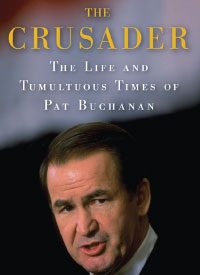
I think with you, that nothing is of more importance for the public weal, than to form and train up youth in wisdom and virtue…. I think also, that general virtue is more probably to be expected and obtained from the education of youth, than from the exhortation of adult persons; bad habits and vices of the mind, being, like diseases of the body, more easily prevented than cured.
I think moreover, that talents for the education of youth are the gift of God; and that he on whom they are bestowed, whenever a way is opened for the use of them, is as strongly called as if he heard a voice from heaven.
— Benjamin Franklin to Samuel Johnson, August 23, 1750
Benjamin Franklin understood, as did most of his colleagues, that if the Republic they established were to be preserved, the minds of the youth would have to be trained to recognize and revere the timeless principles of liberty upon which it was built.
To this end, Connor Boyack offers his first children’s book, The Tuttle Twins Learn About The Law.
In his latest work, Boyack — the president and founder of the Libertas Institute, a public policy think tank based in Utah — takes on the noble task of familiarizing children with the seminal book The Law, written in 1850 by French political economist Frédéric Bastiat, and the timely lessons he lays out there.
The book, available now, introduces readers to a pair of precocious siblings, Ethan and Emily Tuttle. The twins are nine-year-olds assigned by their teacher to interview someone wise. They choose their neighbor, Fred, “an older man who grew up in France.”
After explaining to Fred the purpose of their visit, Emily and Ethan accompany their wise neighbor to his library where the elder man pulls down a copy of Bastiat’s The Law, telling his young friends that the law is “something that affects every person every day.”
Fred (named, he explains, for the author of The Law) explains to the twins a very important aspect of the law: rights.
“Having rights means that there are some things I can do, and nobody else is allowed to stop me,” Fred says.
Fred relates to the children that rights are a gift of God and He expects us to preserve, develop, and protect them.
Boyack’s avuncular protagonist goes on to define Bastiat’s concept of “legal plunder” for his interviewers.
In The Law, Bastiat defines legal plunder as the government’s use of force to take from one man property that rightly belongs to him and giving it to another, to whom it does not rightly belong.
Fred helps the Tuttle twins understand this situation by having them go with him to his garden and look at his prize tomatoes.
Explaining that one of their neighbors loves when he gives her one of his tasty tomatoes, Fred asks the kids what they would think if the neighbor came over and took one of the tomatoes without asking.
“Well, that would be wrong, of course,” Emily answered.
In the person of Fred, Boyack goes on to explain one of central principles of The Law: If an act is wrong for an individual to do, it is wrong for a government to do, as well. The government, after all, is (ideally) nothing more than the collective will of individuals who comprise the governed.
After sharing with Ethan and Emily his habit of helping neighbors and others by sharing with them his excess food, Fred explains that it would be nothing less than thievery if those he helped were to come in and help themselves to the goods in his storehouse or if the police or others were to force Fred to give to his neighbors.
“Just like that, the bad guys in government take my things and give them to others without my permission. Sometimes they take my things to keep for themselves, or give them away to their friends, instead of helping the needy,” Fred tells the Tuttles.
Again, this is a key element of Bastiat’s explanation of the rightful role of government and the proper use of the law. Bastiat says that only those laws which permit the government to perform its responsibility of protecting the rights of citizens are true laws; all others are usurpations and are destructive of liberty.
At the end of his lesson on The Law and its important tenets, Fred informs Ethan and Emily that “We each have to learn important lessons that we use in our lives, and then teach to others.”
“It’s what wise people throughout history have done.”
Boyack has expertly and engagingly brought Bastiat’s book The Law down from parents’ dusty shelves and onto the colorful (the attractive illustrations are drawn by Elijah Stanfield) pages of a children’s book.
The story is simple in the best way and should not be beyond the understanding of any child around the age of the fictional Tuttle twins. Not only are the characters believable, but the narrative flows easily and is remarkably entertaining.
For parents interested in teaching their children about the proper role of government, the rightful use of the law, and the necessity of protecting the God-given rights that are their inheritance, there is no better book available than Connor Boyack’s The Tuttle Twins Learn About The Law.
Joe A. Wolverton, II, J.D. is a correspondent for The New American and travels nationwide speaking on nullification, the Second Amendment, the surveillance state, and other constitutional issues. Follow him on Twitter @TNAJoeWolverton and he can be reached at [email protected].



